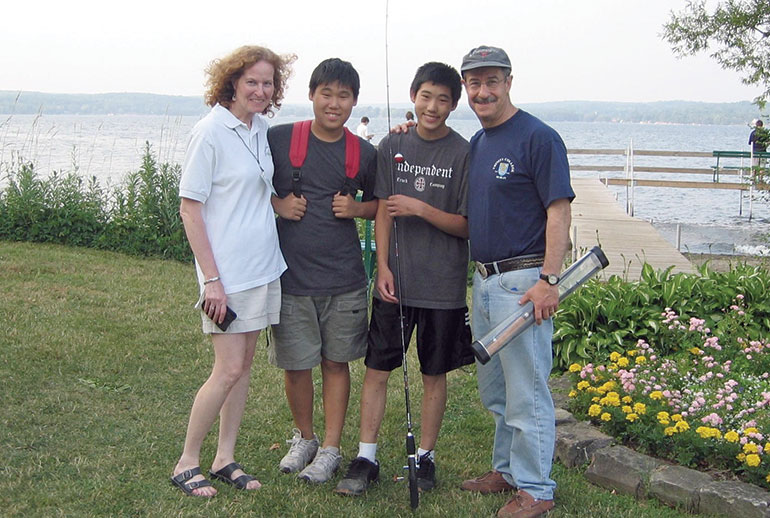Some years ago, I adopted my first son from Korea. His name was David, and he was five months old when he arrived. This did not stop some otherwise sophisticated friends from volunteering that David would no doubt be a good student. Probably a mathematician, they opined, with a tone that uncomfortably straddled jest and prediction. I tried to take it all with good humor, this idea that a five-month-old who could not yet sit up, speak a word, or control his bowels was already destined for academic greatness. Even his major seemed foreordained.
Several months after David arrived home, he and I entered a small mom-and-pop convenience store in our neighborhood. The owners were Korean. I noticed that the husband, who was standing behind the cash register, was eyeing my son.
“Is he Korean?” he asked. “Yes,” I nodded. He reached out for the baby and took my son into his arms. “He’ll be good in math,” declared the man. “My God,” I muttered to myself. Not him, too!
It was preposterous. It was funny. And it was unnerving. Embedded in such elevated expectations were real threats to my son. Suppose, I wondered, he should turn out to be only a mediocre student, or, worse yet, not a student at all. I resented the stereotypes and saw them for what they were, the other side of the coin of racism. It is easy to delude oneself into thinking it harmless to offer racial compliments, but that is an inherent contradiction in terms. Such sweeping descriptions, be they negative or positive, deny the one thing most precious to all people — individuality.
Such stereotypes also place a crushing burden on Asians. Few would deny that disproportionate numbers of Asian surnames appear each year among the winners of the Westinghouse science prizes or in the ranks of National Merit Scholars. But it might be a reflection of parental influences, personal commitment, and cultural predilections, not genetic predisposition. A decade ago, as a Fulbright Lecturer in Beijing, I saw firsthand the staggering hours my Chinese students devoted to their studies. Were my students in the United States to invest similar time in their books, I would have every reason to expect similar results.
My son David is now in the first grade. He is already taking math with the second-graders and asking me about square roots and percentiles. I think back to the Korean merchant who took him in his arms and pronounced him a math whiz. Was he right? Do Asians have it easier, endowed with some special strand of DNA? The answer is a resounding no. Especially in our house. David has learning disabilities to overcome, and what progress he has made is individual in the purest and most heroic sense. No one can or should take that away from him, suggesting that he is just another wunderkind belonging to a favored race.
A year after my first son arrived, we adopted his brother from Korea. His name is Matthew. Let it be known that Matthew couldn’t care less about math. He’s a bug man. Slugs and earthworms. I suspect he will never be featured in any cover stories about Asian-American whiz kids, but I will continue to resist anything and anyone who attempts to dictate either his interests or his abilities based on race or place of birth. Bugs are fine by me and should be more than fine by him.
A longer version of this article originally appeared in Newsweek.



